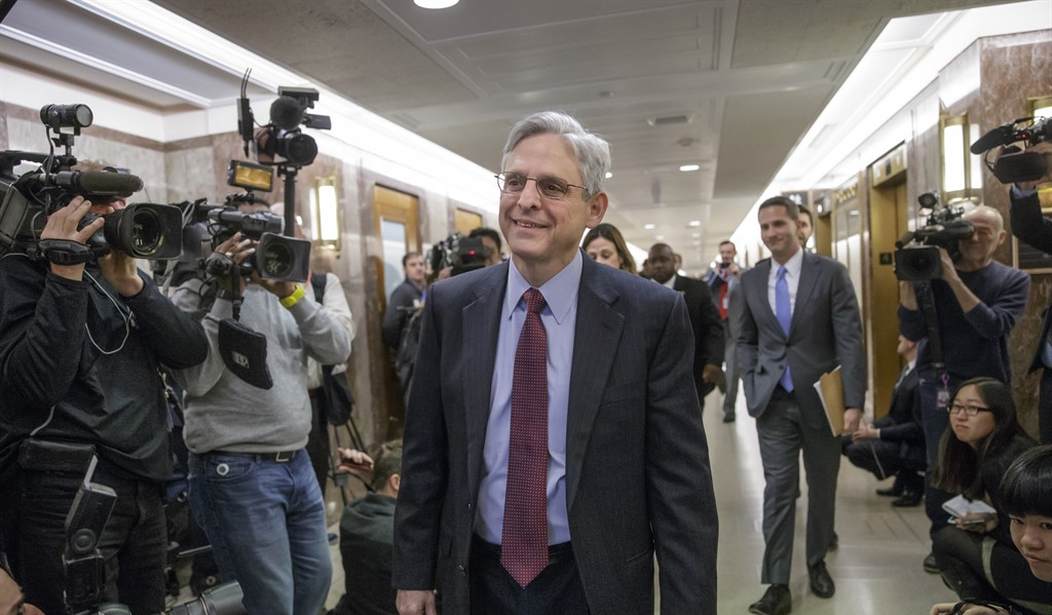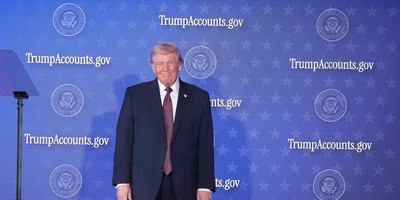President Obama recently nominated Merrick Garland to the United States Supreme Court. Judge Garland -- a respected and eminently qualified jurist, by all accounts -- has been serving as the chief judge for the United States Circuit Court of Appeals for the District of Columbia Circuit. To the extent that anything outside of presidential campaign shenanigans gets news coverage these days, issues with Judge Garland's nomination seem limited to questions about whether he will tip the Court's jurisprudence to the "more liberal" side, or whether Republicans in the Senate have "abdicated" their "constitutional responsibility" to hold a vote on Judge Merrick's nomination.
I have a different beef with his selection.
I think it's time for a patent lawyer to be named to the Supreme Court.
Most of the federal appellate circuits and even some state judiciaries have been represented on the Supreme Court at one time or another. Retired Justice David Souter and current Justice Stephen Breyer came from the 1st Circuit; Justice Sonia Sotomayor from the 2nd Circuit; Justice Samuel Alito from the 3rd Circuit; former Justice John Paul Stevens from the 7th Circuit; and Justice Anthony Kennedy from the 9th Circuit. Retired Justice Sandra Day O'Connor came from the Arizona Superior Court.
Still other justices have come from law enforcement. Current Justice Elena Kagan was serving as solicitor general of the United States prior to her nomination by President Barack Obama. Former Chief Justice William Rehnquist was elevated from his position in the Justice Department as assistant attorney general in the Office of General Counsel.
But -- at least in recent years -- it is Judge Garland's professional home, the D.C. Circuit, that has served as a veritable breeding ground for Supreme Court nominees. Of the recent Supreme Court justices -- including the recently deceased justice Antonin Scalia -- four (Scalia, Chief Justice John Roberts, and Justices Clarence Thomas and Ruth Bader Ginsburg) served on the D.C. Circuit, as did failed nominees Robert Bork (nominated in 1987) and Miguel Estrada (nominated in 2003).
Recommended
To an extent, presidents' predilection for D.C. Circuit Court judges is understandable. The D.C. Circuit has historically had an enormous impact on U.S. policy by virtue of its jurisdiction; it reviews decisions and rules issued by many federal agencies and hears many more constitutional challenges to federal programs than do the other federal appellate courts.
I submit that we should be looking for a Supreme Court nominee from the United States Circuit Court of Appeals for the Federal Circuit. Created in 1982, the Federal Circuit has much more limited jurisdiction. But among the areas of law for which it has exclusive appellate jurisdiction is patent law. The Federal Circuit is the de facto authority on patent law, taking as it does all of the appeals of patent infringement cases from every U.S. District Court in the United States. Virtually all of the judges serving on the Federal Circuit have extensive experience in intellectual property law -- patent law in particular.
By contrast, most (if not all) recent Supreme Court justices have had little professional experience with intellectual property law. And it shows.
There seems to be something of a turf war going on between the Federal Circuit and the Supreme Court of late. The Supreme Court has taken an unusual number of appeals from the Federal Circuit in recent years, and delights in overturning long-standing precedent in patent law without offering new tests or standards which Federal Circuit judges (not to mention District Court judges and examiners at the U.S. Patent and Trademark Office) are supposed to apply.
Why does it matter? Consider some of these data:
Over the past 50 years, patents (and intellectual property in general) have grown in their importance to the U.S. economy. In 1963, the U.S. Patent and Trademark Office received about 90,000 patent applications. Last year, it received 629,647. According to the Global Intellectual Property Center at the U.S. Chamber of Commerce, America's intellectual property is "worth $5.8 trillion, more than the nominal GDP of any other country in the world." Industries that are intellectual property-dependent account for nearly 40 percent of U.S. GDP and employ over 40 million Americans. Nearly three-quarters of our exports are tied to intellectual property in some way, to the tune of $1 trillion a year.
Technology is advancing at a rapid pace, and the law struggles to keep up. Congress passed the America Invents Act in 2011, which is still being interpreted. Patent law in general developed at a time when patentable subject matter was almost entirely tangible. The language of patent law is frequently stretched to its limits to accommodate today's technologies, many of which are entirely digital, some of which are developed my companies that are almost entirely virtual.
Corporate technology behemoths -- companies such as Apple, Microsoft, AT&T, Ericsson, Sony, Samsung, IBM, Hewlett-Packard and Intel -- are constantly expanding their patent portfolios. Lawsuits between these big players (referred to as the "intellectual property wars") are in the news daily, often go on for years and run into the billions of dollars. The rights of small innovators are difficult to preserve in this climate.
While the implications of these battles might not be immediately obvious to the Average Joe, the public is concerned about such issues as the privacy of their data, the ability of the government to demand that private companies turn over customer information, the threat (or lack thereof) of "patent trolls," genetically modified foods and black-market goods in foreign countries, just to name a few.
The increased importance that intellectual property plays in a global information economy, and the explosion of legal issues related to it, make the lack of intellectual property experience on the nation's highest court a glaring shortcoming. In today's environment, what we need on the Supreme Court is not another finely trained constitutional scholar, but at least one experienced individual with a comprehensive understanding of intellectual property law.
Court watchers speculate that the next president will have the opportunity to appoint at least two new justices. Here's hoping that he -- or she -- will give serious consideration to judges serving on the Federal Circuit Court of Appeals. Their time has come.

























Join the conversation as a VIP Member